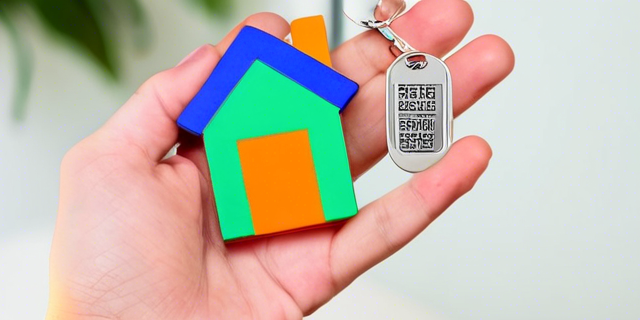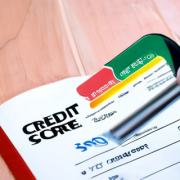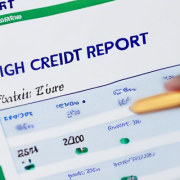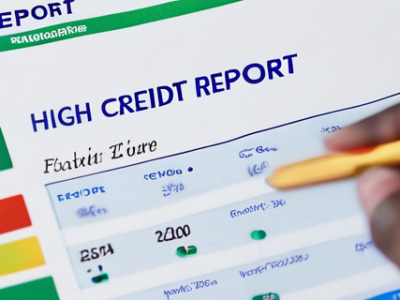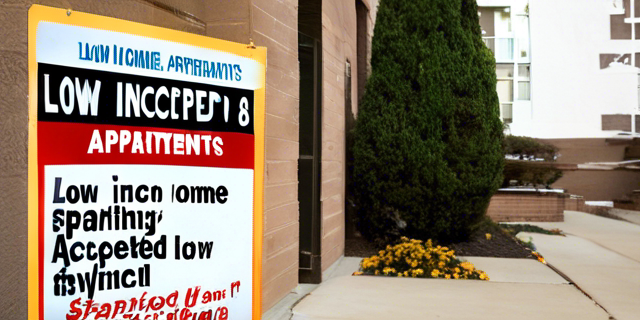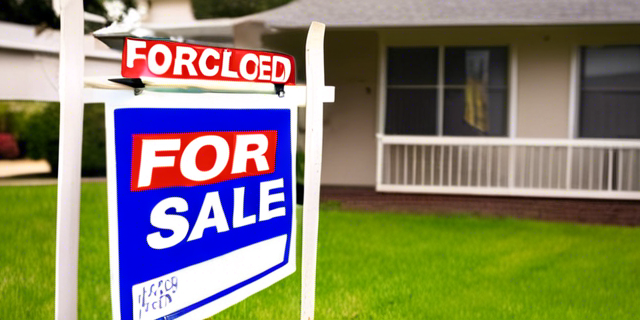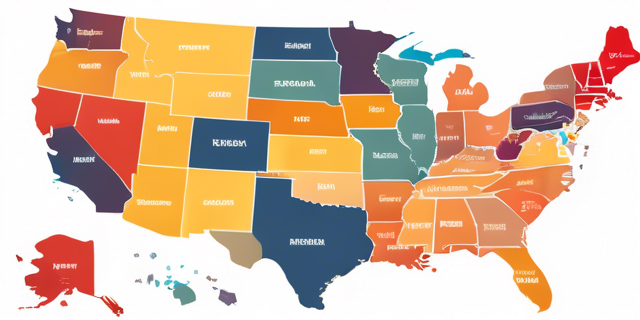What is a good credit score for buying a house
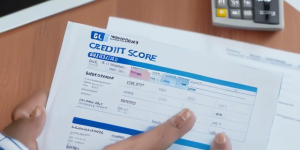
Introduction
Buying a house is a major milestone, a rite of passage that symbolizes stability, security, and the American Dream. However, before you can unlock that dream and call yourself a homeowner, you’ll need to navigate the intricate maze of credit scores, mortgage approvals, and financial scrutiny. Your credit score, a seemingly innocuous three-digit number, holds the power to make or break your homeownership aspirations.
In this comprehensive guide, we’ll demystify credit scores, explore what constitutes a good credit score for buying a house, and provide you with actionable tips to boost your score and increase your chances of securing that coveted mortgage approval.
Understanding Credit Scores: The Numerical Gatekeeper
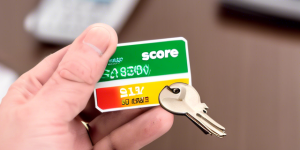
Your credit score is a numerical representation of your creditworthiness, a measure of how reliable you are when it comes to repaying borrowed money. Think of it as a financial report card, grading your ability to manage credit responsibly.
Credit scores typically range from 300 to 850, with higher scores indicating a lower risk for lenders. These scores are calculated based on various factors, including your payment history, outstanding debt, credit age, and credit mix.
While different scoring models exist, the two most widely used are the FICO® Score and the VantageScore®. Lenders and credit bureaus (Experian, Equifax, and TransUnion) use these scores to assess your creditworthiness and determine your eligibility for loans, credit cards, and other financial products.
The Importance of a Good Credit Score for Homebuyers
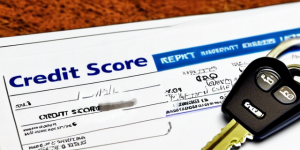
When it comes to purchasing a home, your credit score plays a pivotal role in determining your mortgage approval and interest rates. Lenders view a high credit score as a sign of financial responsibility, reducing the risk of defaulting on your mortgage payments.
A good credit score can open doors to more favorable loan terms, lower interest rates, and potentially save you thousands of dollars over the life of your mortgage. Conversely, a low credit score can lead to higher interest rates, less desirable loan terms, or even outright rejection from lenders.
“Your credit score is like a virtual handshake with lenders, establishing trust and credibility before you even walk through the door.” – Financial Educator, Ramit Sethi
What is Considered a Good Credit Score for Buying a House?

While there is no definitive cutoff for what constitutes a “good” credit score, most lenders have their own guidelines and preferences. Generally speaking, here’s a breakdown of credit score ranges and their impact on your homebuying journey:
Excellent Credit (800+)
If your credit score falls within this range, congratulations! You’re in an enviable position, and lenders will view you as a low-risk borrower. With an excellent credit score, you’ll have access to the best mortgage rates and loan terms, potentially saving you thousands of dollars over the life of your loan.
Very Good Credit (740-799)
A credit score in this range is still considered excellent by most lenders, and you should have no trouble securing a mortgage with favorable terms. However, you may not qualify for the absolute best rates reserved for borrowers with scores above 800.
Good Credit (670-739)
If your credit score falls within this range, you’re still in a solid position to buy a house, but you may not receive the most competitive interest rates. Lenders may view you as a slightly higher risk, potentially resulting in higher monthly payments or additional fees.
Fair Credit (580-669)
With a fair credit score, securing a mortgage may become more challenging, but it’s still possible. Lenders may require larger down payments, higher interest rates, or additional documentation to offset the perceived risk. Shopping around and working with a mortgage broker can be beneficial in this situation.
Poor Credit (500-579)
If your credit score falls into this range, you’ll likely face significant hurdles when trying to secure a conventional mortgage. Lenders may view you as a high-risk borrower and may deny your application outright. In such cases, you may need to explore alternative lending options, such as FHA loans or subprime mortgages, which typically come with higher interest rates and stricter requirements.
It’s important to note that these ranges are general guidelines, and individual lenders may have their own specific criteria for evaluating credit scores. Additionally, other factors, such as your income, employment history, and down payment amount, can also influence your mortgage approval and interest rates.
Factors That Affect Your Credit Score

To better understand how to improve your credit score and boost your chances of homeownership, it’s essential to know the key factors that influence your credit score. According to FICO, the main components that make up your credit score are:
Payment History (35%)
Your payment history is the single most critical factor in determining your credit score. Lenders want to see a consistent track record of making on-time payments for all your credit obligations, including credit cards, loans, and other bills. Late or missed payments can significantly damage your score, so it’s crucial to stay on top of your payments.
Credit Utilization (30%)
Credit utilization refers to the amount of credit you’re using compared to your total available credit. Lenders prefer borrowers who keep their credit utilization low, ideally below 30% of their total credit limit. High credit utilization can be seen as a red flag, indicating potential financial strain or overspending.
Length of Credit History (15%)
The length of your credit history demonstrates your experience in managing credit over time. Generally, a longer credit history (with a mix of different types of credit) is viewed more favorably than a shorter one. Lenders like to see a proven track record of responsible credit management.
Credit Mix (10%)
Your credit mix refers to the different types of credit you have, such as credit cards, loans, mortgages, and other lines of credit. Having a diverse mix of credit can positively impact your score, as it shows your ability to manage various credit products responsibly.
New Credit Applications (10%)
Each time you apply for new credit, it can result in a hard inquiry on your credit report, which can temporarily lower your score. Too many hard inquiries in a short period can raise red flags for lenders, as it may suggest financial desperation or increased risk.
By understanding these factors, you can take proactive steps to improve your credit score and increase your chances of securing a favorable mortgage.
Improving Your Credit Score for Homebuying
If your credit score isn’t quite where you’d like it to be for homebuying, don’t fret. There are several strategies you can employ to boost your score and improve your chances of securing a mortgage with favorable terms.
Monitor Your Credit Reports
The first step in improving your credit score is to obtain your credit reports from the three major credit bureaus (Experian, Equifax, and TransUnion). You can get free annual credit reports from AnnualCreditReport.com. Review these reports carefully for any errors or inaccuracies that could be dragging down your score.
If you find any errors, dispute them with the appropriate credit bureau and provide supporting documentation to have them corrected. Fixing these errors can result in an immediate boost to your credit score.
Pay Bills on Time, Every Time
As payment history is the most significant factor in determining your credit score, making all your payments on time is crucial. Set up automatic payments or payment reminders to ensure you never miss a due date.
If you’ve missed payments in the past, get caught up as soon as possible and maintain a consistent on-time payment history moving forward.
Reduce Credit Card Balances
High credit card balances can significantly impact your credit utilization ratio and, consequently, your credit score. Aim to keep your credit utilization below 30% of your total credit limit.
One effective strategy is to make multiple payments throughout the month, rather than waiting for the due date. This can help lower your reported balances and improve
Limit Credit Inquiries
Every time you apply for new credit, it results in a hard inquiry on your credit report, which can temporarily lower your score. Limit credit applications to only what is necessary, and avoid applying for multiple credit products within a short period.
If you’re rate shopping for a mortgage or other loan, try to do it within a focused period, as multiple inquiries for the same type of credit will usually be counted as a single inquiry.
Increase Credit Limits
If you have a good payment history and a low credit utilization ratio, you can request a credit limit increase from your credit card issuers. A higher credit limit can lower your overall credit utilization, potentially boosting your score.
However, be cautious when increasing credit limits, as it’s essential to maintain discipline and avoid overspending.
Consider Credit-Boosting Products
If you have a thin credit file or limited credit history, you may want to explore credit-boosting products designed to help build or improve your credit score. These can include secured credit cards, credit-builder loans, or becoming an authorized user on someone else’s credit card (with their permission and a positive payment history).
Be Patient and Consistent
Improving your credit score takes time and consistency. It’s essential to be patient and maintain good credit habits over an extended period. Negative items on your credit report can take several years to fall off, but consistent positive behavior can help offset their impact sooner.
Remember, there are no quick fixes or shortcuts when it comes to building a strong credit score. It’s a marathon, not a sprint.
Alternative Mortgage Options for Homebuyers with Lower Credit Scores
If your credit score falls below the typical thresholds for conventional mortgages, don’t lose hope. Several alternative mortgage options are available to help make homeownership a reality, even with less-than-perfect credit.
FHA Loans
The Federal Housing Administration (FHA) offers mortgage loans with more lenient credit requirements, backed by the government. FHA loans typically require a minimum credit score of 580 for a 3.5% down payment, or a score of 500-579 with a 10% down payment.
While FHA loans come with additional mortgage insurance premiums, they can be an excellent option for first-time homebuyers or those with credit challenges.
VA Loans
If you’re an active-duty military member, veteran, or eligible spouse, you may qualify for a VA loan, which doesn’t have a specific minimum credit score requirement. However, lenders will still evaluate your creditworthiness and may have their own credit score guidelines.
VA loans offer several benefits, including no down payment requirement and no private mortgage insurance.
USDA Loans
The United States Department of Agriculture (USDA) offers mortgage loans for low-to-moderate-income homebuyers in eligible rural areas. While there’s no official minimum credit score requirement, lenders typically prefer scores above 640 for USDA loans.
These loans can provide 100% financing and low mortgage insurance premiums, making them an attractive option for those with limited resources.
Non-Qualified Mortgages (Non-QM)
Non-Qualified Mortgages (Non-QM) are a type of mortgage that falls outside the qualified mortgage (QM) rules set by the Consumer Financial Protection Bureau (CFPB). These loans are designed for borrowers who may not meet the strict income, credit score, or debt-to-income ratio requirements of conventional mortgages.
Non-QM lenders evaluate borrowers on a case-by-case basis, considering factors such as income stability, assets, and overall creditworthiness. While interest rates and fees may be higher, Non-QM loans can provide a path to homeownership for those with unique financial situations or credit challenges.
Subprime Mortgages
Subprime mortgages are designed for borrowers with poor credit scores, typically below 620. These loans often come with higher interest rates and stricter terms to compensate for the increased risk.
While subprime mortgages can be a last resort for homebuyers with significant credit issues, it’s crucial to carefully evaluate the terms and ensure you can comfortably afford the monthly payments.
When exploring alternative mortgage options, it’s essential to work closely with a knowledgeable mortgage professional who can guide you through the process and help you find the best solution for your unique circumstances.
Tips for a Smooth Homebuying Process with Less-Than-Perfect Credit
Even if your credit score isn’t picture-perfect, there are steps you can take to increase your chances of a successful homebuying experience.
Work with a Mortgage Broker
A skilled mortgage broker can be an invaluable asset, particularly if your credit score falls outside the conventional ranges. Brokers have access to a wide range of lenders and mortgage products, including those catering to borrowers with credit challenges.
They can help you navigate the complexities of the mortgage process, identify lenders with more flexible credit requirements, and potentially negotiate more favorable terms on your behalf.
Increase Your Down Payment
While a higher down payment won’t directly improve your credit score, it can demonstrate your financial commitment and reduce the lender’s risk. Aim to save as much as possible for a down payment, as this can offset concerns about a lower credit score and increase your chances of mortgage approval.
Provide Compensating Factors
Lenders often consider compensating factors when evaluating borrowers with less-than-ideal credit scores. These can include a steady employment history, substantial cash reserves, or a low debt-to-income ratio.
Be prepared to provide documentation and explanations that demonstrate your financial stability and ability to make mortgage payments, even with a lower credit score.
Consider a Co-signer or Co-borrower
If your credit score is a significant hurdle, you may want to explore the option of adding a co-signer or co-borrower with a stronger credit profile to your mortgage application. This can improve your overall creditworthiness and increase your chances of approval.
However, it’s crucial to understand the implications and responsibilities involved, as the co-signer or co-borrower will be legally obligated for the mortgage.
Be Upfront and Transparent
Throughout the homebuying process, it’s essential to be upfront and transparent about your credit situation. Provide explanations for any negative items on your credit report and outline the steps you’ve taken to improve your score.
Lenders appreciate honesty and proactive efforts to address credit challenges, as it demonstrates financial responsibility and commitment.
Conclusion
Your credit score plays a pivotal role in determining your eligibility for a mortgage and the terms you’ll receive. While a higher score is generally preferred, it’s possible to secure a mortgage with a less-than-perfect credit score by exploring alternative options and implementing strategies to improve your creditworthiness.
Remember, building and maintaining a good credit score is an ongoing process that requires discipline, patience, and responsible financial habits. By staying on top of your credit, making timely payments, and managing your debt wisely, you can increase your chances of achieving the dream of homeownership, regardless of your current credit situation.
The path to homeownership may have its challenges, but with the right mindset, practical strategies, and a little persistence, that dream can become a reality, even with a less-than-perfect credit score.
FAQs
Q1: Can I get a mortgage with a credit score below 600?
While it’s challenging to secure a conventional mortgage with a credit score below 600, alternative options like FHA loans, VA loans, or non-QM mortgages may be available. However, you may need to provide compensating factors, such as a larger down payment or steady employment history, to offset the higher risk.
Q2: How long does it take to improve a credit score?
The time it takes to improve a credit score can vary depending on your specific situation and the actions you take. In general, consistently making on-time payments and reducing outstanding debt can lead to gradual improvements over several months. Significant negative items, such as bankruptcies or foreclosures, can take several years to fall off your credit report.
Q3: Can I get pre-approved for a mortgage with a low credit score?
While it’s possible to get pre-approved for a mortgage with a lower credit score, the pre-approval may come with conditions or limitations. Lenders may require a larger down payment, higher interest rates, or additional documentation to offset the increased risk. It’s essential to be upfront about your credit situation during the pre-approval process.
Q4: How much does a credit score impact mortgage interest rates?
Your credit score can significantly impact the interest rate you’ll receive on your mortgage. Generally, the higher your credit score, the lower the interest rate

